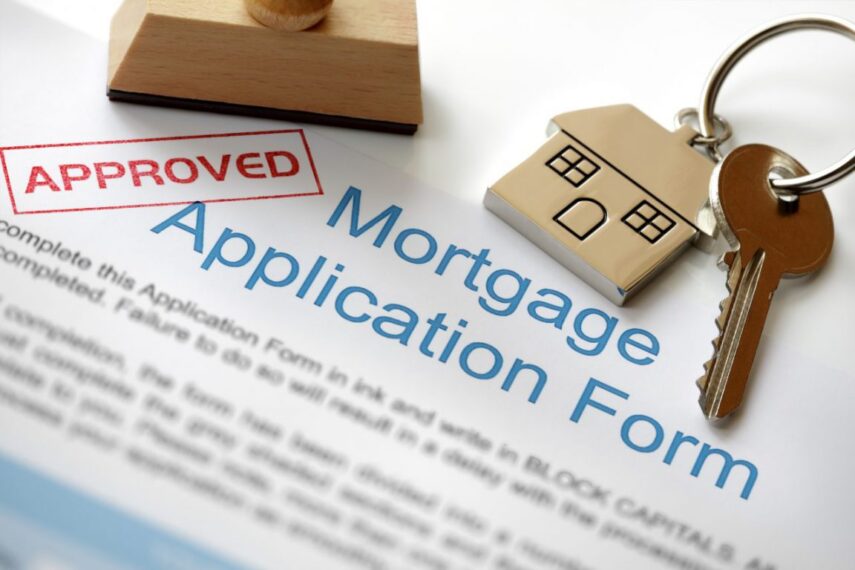Remortgaging your home is a popular choice for many homeowners at the moment. But what does remortgaging mean and why do homeowners choose to pursue this? We take a closer look at how remortgaging works and who may wish to pursue this option.
What Does Remortgaging Mean?
First of all, what does remortgaging mean and how does it work? A simple definition of a remortgage is that it covers the process of switching from your current mortgage to a new deal. You will transfer to a new mortgage lender without moving out of your current property.
Why People Remortgage

People remortgage their homes for a wide variety of reasons. For example, you may notice that a different mortgage lender is offering a deal with lower rates – but only for new customers. These discounts are normally only available for up to five years, and after this, your repayments will fall under the Standard Variable Rate (SVR) of your lender. These rates will be the most expensive.
Remortgaging allows you to move to a different lender, taking advantage of their deals. You may also wish to remortgage if interest rates have changed during your current deal.
Other reasons that people decide to remortgage include allowing you to boost the amount you previously borrowed, which could be a sensible way of combining your debts or sourcing enough money to renovate your home. However, in some circumstances, homeowners decide to remortgage simply due to poor service or treatment from the current provider.
Is Remortgaging Right for Me?
Remortgaging might be right for you if you have pre-existing good credit scores and a solid credit history. You should have built up a fair amount of equity in your home over the length of your time there, and should also have a steady income. Remortgaging is not a quick way to get more money – it is a serious commitment and having a high level of income and potentially even disposable income can be essential. Here, we list the reasons as to why it might not be the best time to remortgage:
- Right now, interest rates are at an all time high. If you already have a great deal, this may not be relevant to you.
- If remortgaging means paying costly early repayment charges.
- If you own less than 10% of your property, it means that the deals available are fewer and more expensive.
- If you’ve had a change of circumstances (for example, your income has changed).
- When you have a bad credit score.
What are the Costs of Remortgaging?

Remortgaging can be costly if not done carefully – and even then, there are a variety of fees that you can expect to pay. This can vary depending on who you are remortgaging with. If you are still under a mortgage deal with your current lender, then you will need to pay an early repayment fee, which is normally a percentage of your remaining mortgage. There can also be admin fees and legal fees for the support of a solicitor. A new lender will also wish to assess the value of your property, which could lead to valuation fees.
In order to find the best new deal, you may wish to work with a mortgage broker. An experienced mortgage broker can charge a commission fee based on how much your mortgage is worth, and can connect you with a range of lenders to find the most appropriate choice for your specific needs and circumstances.
Click here for access to a professional and experienced mortgage brokerage service.
Preparing Yourself for Remortgaging
Before you begin looking to remortgage, there are three checks you need to make sure of with your current mortgage. You should consider the following:
- Early repayment charges can amount to thousands of pounds, and you may be charged if you leave an introductory deal before it expires (e.g. a five-year fix).
- Depending on your provider, you could be charged an exit fee if you decide to leave. These typically cost between £50 and £200.
- How much money do you still owe your current lender? You’ll need the specific figures.
What You Can Do to Improve Your chances of Being Accepted to Remortgage

Mortgage companies have become increasingly difficult to work with and the cost of living crisis has made it even harder for people to afford a mortgage. Just because you’ve been approved for a loan in the past doesn’t mean that you will be again. Here is everything you can do to make yourself more appealing to lenders including:
- By taking certain measures, you can improve your credit score. This includes being on the electoral roll, financially ‘delinking’ from exes, and not missing due payments.
- Before you remortgage, be sure to show that you can afford it by gathering together proof of your income and doing a comprehensive money makeover.
- Another way to improve your credit score is by increasing the amount of equity you have, closing any unused credit cards, and avoiding being in overdraft.
How to Remortgage

Remortgaging may seem like a lengthy and challenging process, but how do you remortgage your home and how long does a remortgage take? You might expect the entire process to be completed within one to two months. To begin with, you should look at paperwork related to your current agreement so that you can understand what type of mortgage you have, what your interest rate is, and how long you have left to pay off the remaining amount. At this point, it is advisable to speak to a mortgage broker who can advise you on the best choice for you – they will be able to explain any fees you will pay, and whether this will outweigh any savings made.
Your current lender should be informed of your intention, as they may be able to offer to match any deal you find. If not, you can make your mortgage application and speak to a conveyancing solicitor in order to make the transfer – unless you remain with your existing lender, in which case you will not need to speak to a solicitor in order to complete the process.
Remortgaging may not be the right choice for everyone, but you may be able to make some significant changes to your repayments and enjoy more financial freedom.







